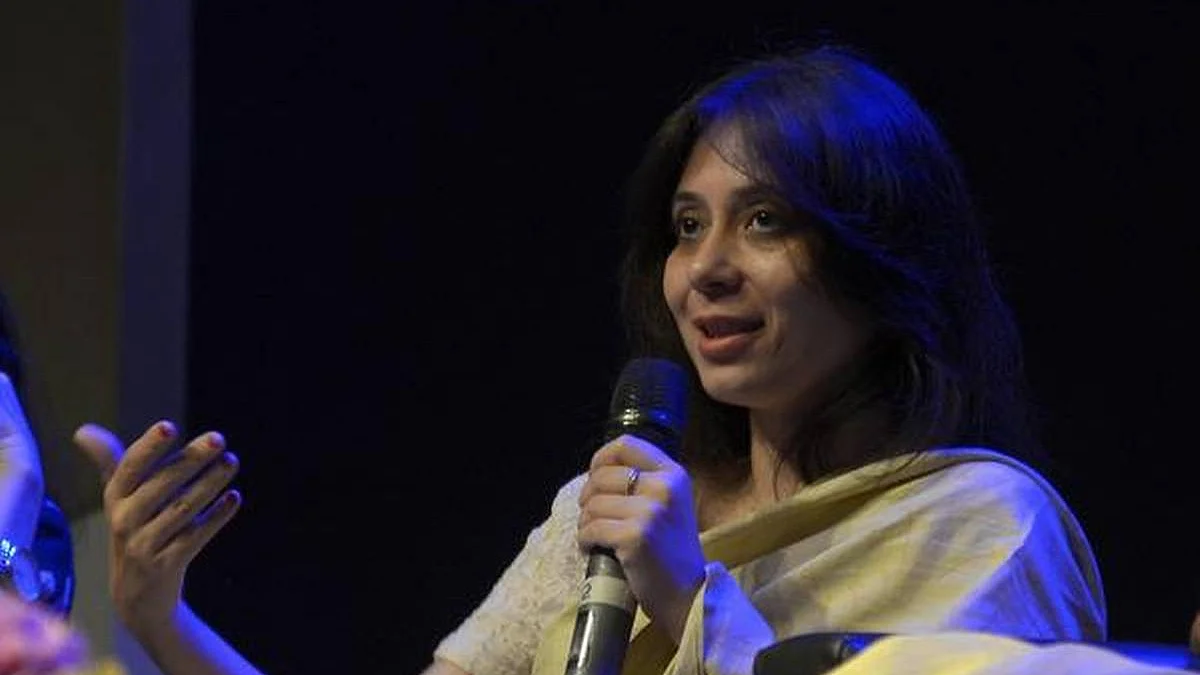Indian writer wins USD 100,000 global book prize
Indian writer Annie Zaidi was announced as the 2019 winner of the USD 100,000 Nine Dots Prize, a prestigious book prize created to award innovative thinking that addresses contemporary issues

Indian writer Annie Zaidi was on Wednesday announced as the 2019 winner of the USD 100,000 Nine Dots Prize, a prestigious book prize created to award innovative thinking that addresses contemporary issues around the world.
Mumbai-based Zaidi, a freelance writer whose work includes reportage, essays, short stories, poetry and plays, won for her entry ‘Bread, Cement, Cactus' – combining memoir and reportage to explore concepts of home and belonging rooted in her experience of contemporary life in India.
“What really appealed to me about the Nine Dots Prize was the way it encourages entrants to think without borders or restraints. My work has often crossed over genres, traversing between memoir and journalism, and this timely but wide-open question encouraged us to approach it with methods that were equally far-ranging,” said the 40-year-old winner.
Now in its second cycle, the prize challenged entrants to answer the question ‘Is there still no place like home?' in a 3,000-word essay. The winner of the Nine Dots Prize is supported to develop their response into a full-length book, which is published by Cambridge University Press (CUP), and given the opportunity to spend a term at the Centre for Research in the Arts, Social Sciences and Humanities (CRASSH), Cambridge University.
“I had been working towards a similarly themed project for a while but didn't have the financial, or even mental, bandwidth to do it justice. The Prize will allow me to dedicate time to the examination of this question, which is of critical importance in the modern world – and it will help fund the necessary research trips, which, as a freelancer, is something I appreciate hugely,” said Zaidi, who works on fiction, scripts and columns for magazines and newspapers.
She has published both fiction and non-fiction, including a collection of essays ‘Known Turf: Bantering with Bandits and Other True Tales', which was shortlisted for the Crossword Book Award in 2010, and ‘Love Stories # 1 to 14' – a collection of short fiction published in 2012.
Her new proposed book, based on her Nine Dots Prize winning essay ‘Bread, Cement, Cactus', will be published by CUP in May 2020 and will answer the central question through examining how a citizen's sense of “home” might collapse, or be recovered. The varied themes it will address include the politics and economics of death in India, the crossing of caste and religious lines in marriage, and the Partition of India as a great cultural and emotional sundering.
“In Annie Zaidi we have found a powerful and compelling voice with a unique insight into what home means for citizens of the world today. We are very excited to see how Annie's work will develop over the coming year and hope that it will help further current conversations around the concept of belonging worldwide,” said Professor Simon Goldhill, Professor in Greek Literature and Culture and Fellow of King's College, Cambridge University, and Chair of the Nine Dots Prize Board.
“The anonymous judging process is crucial to the Nine Dots Prize's mission to discover new ways of tackling contemporary issues, whether they come from established thinkers or new voices. The fact that our second winner is so different from our first is testament to the success of this method,” he said.
The inaugural Nine Dots Prize posed the question “Are digital technologies making politics impossible?” and was won by former Google employee turned Oxford philosopher James Williams. The resulting book, ‘Stand Out of Our Light: Freedom and Resistance in the Attention Economy', was published in May 2018 to critical acclaim.
The Nine Dots Prize is judged anonymously and funded by the Kadas Prize Foundation, a UK-registered charity established to fund research into significant but neglected questions relevant to today's world. The Prize name name references a lateral thinking puzzle that can only be solved by drawing outside of a box of nine dots arranged in three rows of three.
The foundation was established by Peter Kadas, who has worked around the world for a number of leading institutions. Originally from Hungary, he holds Canadian and British citizenship and currently lives in Barcelona, Spain.
Besides Kadas and Prof Goldhill, the Nine Dots Prize Board is comprised of 9 other internationally recognised and distinguished academics, authors, journalists and thinkers.
Follow us on: Facebook, Twitter, Google News, Instagram
Join our official telegram channel (@nationalherald) and stay updated with the latest headlines